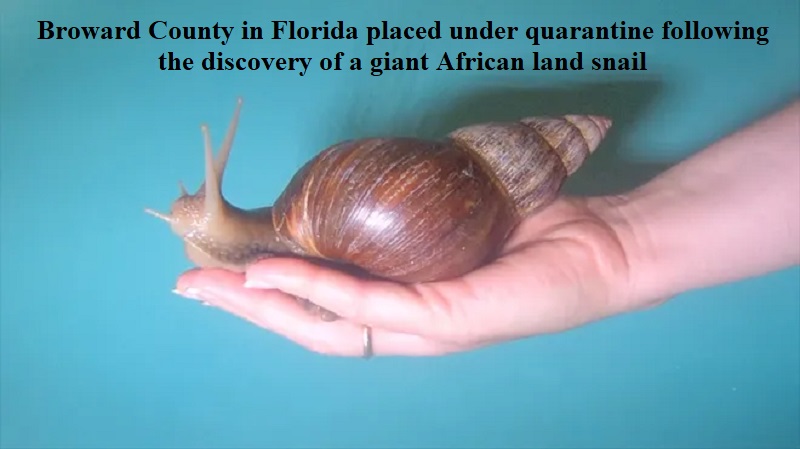
According to a report by CBS News, Broward County in Florida has been put under quarantine due to the detection of a colossal African land snail. These snails are notorious for their invasive behavior, as they can reach a size of up to eight inches (20.3 centimeters) and lay thousands of eggs at once. The shells of these snails have sharp edges that can puncture vehicle tires, and they also carry a parasite that poses a significant risk to humans by causing meningitis.
CBS states that the giant African land snail is highly destructive to the environment, as it consumes plaster, paint, stucco, and poses a substantial threat to vegetation. The Florida Department of Agriculture and Consumer Services (FDACS) has warned that these snails have the potential to cause extensive damage to tropical and subtropical environments, raising serious concerns about their presence.
The quarantine covers an area of approximately 3.5 square miles (9.1 square kilometers) in Broward County, including the city of Fort Lauderdale, and was implemented on Tuesday. FDACS has explicitly prohibited the movement of any giant African land snails or regulated items, such as plants, plant parts, soil, yard waste, debris, compost, or building materials, within or from the designated quarantine area, unless a compliance agreement is obtained.
FDACS plans to combat the infestation by using a molluscicide called metaldehyde, commonly known as snail bait. The agency assures that this treatment is approved for residential use. Importing or possessing giant African land snails in the United States is illegal, and their presence has been a cause for concern since they were first spotted in Miami in 1969. Despite previous eradication efforts in 1975 and 2021, the recent discovery in Broward County indicates that preventing their spread has not been entirely successful.
ABC News emphasizes the need for prompt action to address the issue, mitigate the damage caused by this invasive species, and prevent further infestations. Strict enforcement of quarantine measures and the appropriate use of treatments are vital to safeguarding the environment and preserving Florida’s agricultural industry.

Post Your Comments